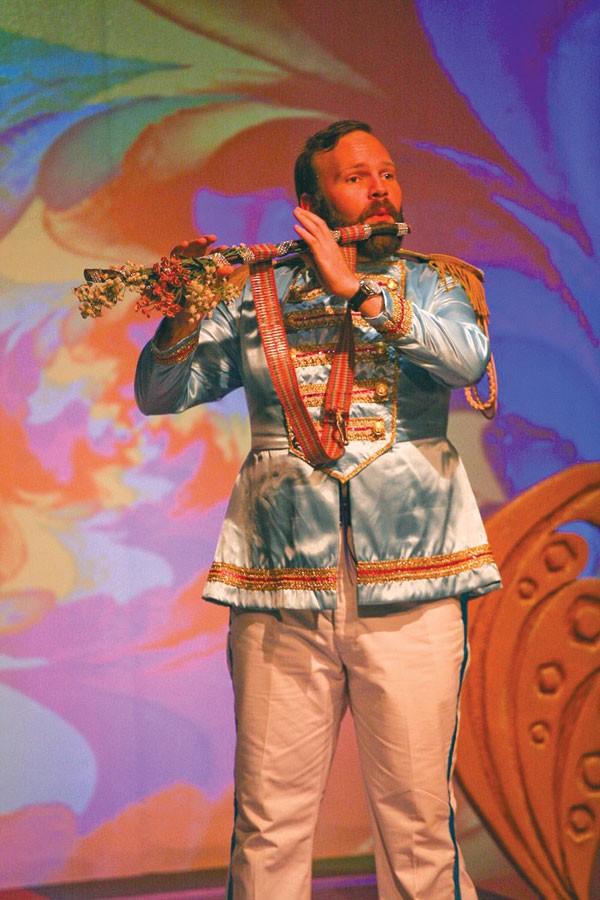What was Mozart smoking? The last opera composed by wacky Wolfgang before his untimely death was The Magic Flute, which contains dragons, birds, magical journeys, princes, princesses, a secret society of wizards—and a plot that doesn’t move forward so much as it wanders, slips, skips, pratfalls and disappears into other dimensions. It’s a magical mystery tour with hints of darkness. It’s also brilliant.
At Cinnabar Theater, director Elly Lichenstein has elected to illuminate the psychedelic underpinnings of Mozart’s opera by steeping it in the brightly colored pop-weirdness of Beatlemania. Borrowing heavily from a catalogue of recognizable 1960s iconography, she’s costumed the hero-prince Tamino (an excellent Jacob Thompson) as if he were a member of Sgt. Pepper’s Lonely Hearts Club Band, and his bird-catching buddy Papageno (Eugene Walden, very funny) is dressed in an old-fashioned dogcatcher’s jumpsuit.
A trio of mystical spirits in service to the evil Queen of the Night (a delightful Dana Pundt), have now become a mini-skirted girl-group resembling the Chantelles, while another trio of child spirits is rendered into a band of roller-skating escapees from a Catholic girls’ school.
The set is painted in vivid, Peter Max colors, and a hypnotic projected backdrop features an ever-changing kaleidoscope of color. There is even an actual yellow submarine, making its appearance at a key moment.
Staying in touch with 1960s fantasy, Lichenstein also borrows from A Clockwork Orange in creating the show’s other villain. A lustful servant whose single goal is to ravish Princess Pamina (a radiant Morgan Harrington), Monostatos (Mark Kratz, effectively frightening) and his crew of ruffians appear here as “droogies,” complete with white onesies and black bowler hats. It’s creepy and unnerving—and oddly funny.
Though Lichenstein’s physical staging and blocking occasionally feel a little static and uninspired, the Beatles effects are wonderfully pleasing and humorous.
Mozart’s music, Lichenstein’s vision and a superb orchestra under the sharp direction of Mary Chun, all work together to give the opera a crazy, “anything goes” tone that is infectious, even when things get a little confusing.
Whether or not the composer was smoking something funny when he wrote The Magic Flute, this clever magical mystery tour is, in every possible way, a trip.
Rating (out of 5): ★★★★











